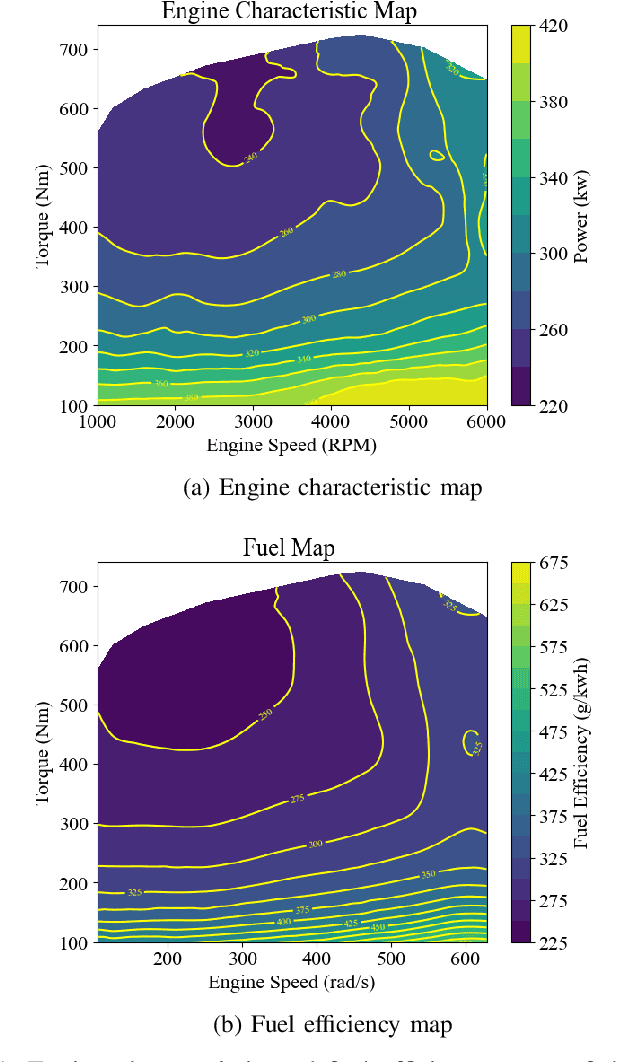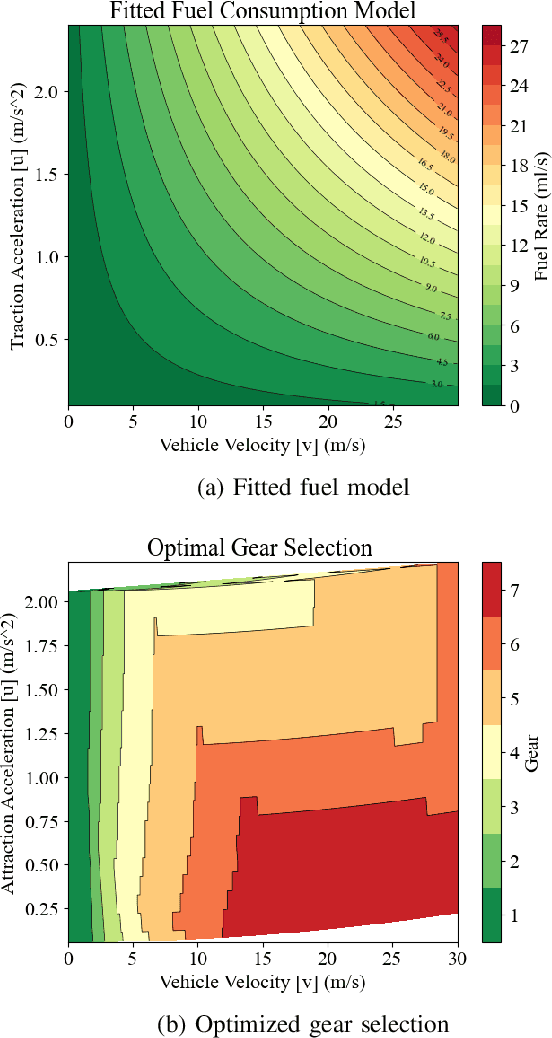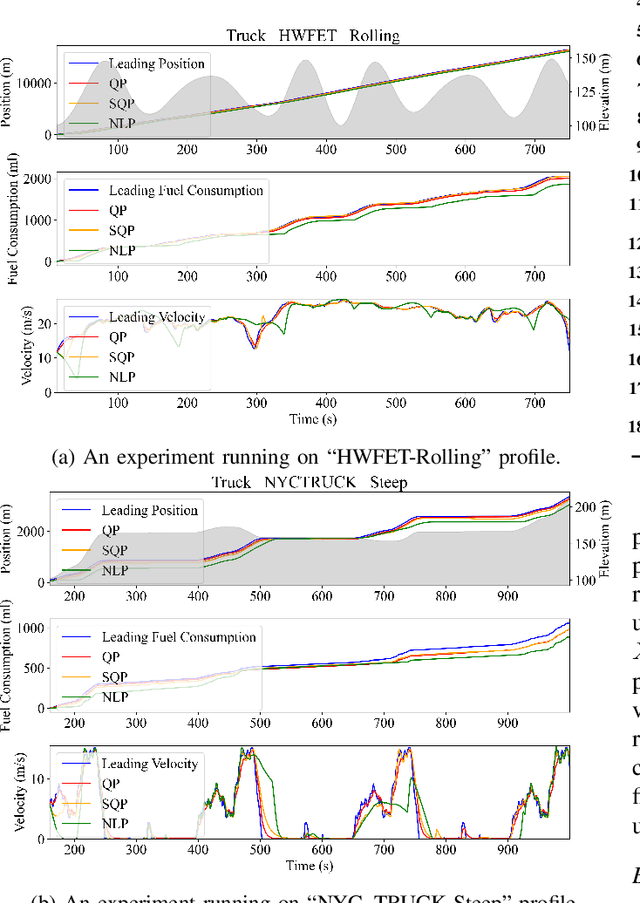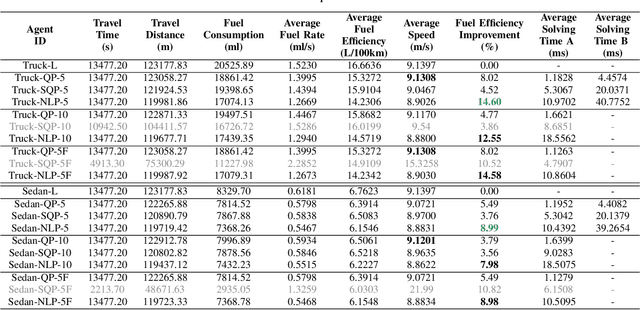Slope Considered Online Nonlinear Trajectory Planning with Differential Energy Model for Autonomous Driving
Paper and Code
Dec 12, 2024



Achieving energy-efficient trajectory planning for autonomous driving remains a challenge due to the limitations of model-agnostic approaches. This study addresses this gap by introducing an online nonlinear programming trajectory optimization framework that integrates a differentiable energy model into autonomous systems. By leveraging traffic and slope profile predictions within a safety-critical framework, the proposed method enhances fuel efficiency for both sedans and diesel trucks by 3.71\% and 7.15\%, respectively, when compared to traditional model-agnostic quadratic programming techniques. These improvements translate to a potential \$6.14 billion economic benefit for the U.S. trucking industry. This work bridges the gap between model-agnostic autonomous driving and model-aware ECO-driving, highlighting a practical pathway for integrating energy efficiency into real-time trajectory planning.
 Add to Chrome
Add to Chrome Add to Firefox
Add to Firefox Add to Edge
Add to Edge